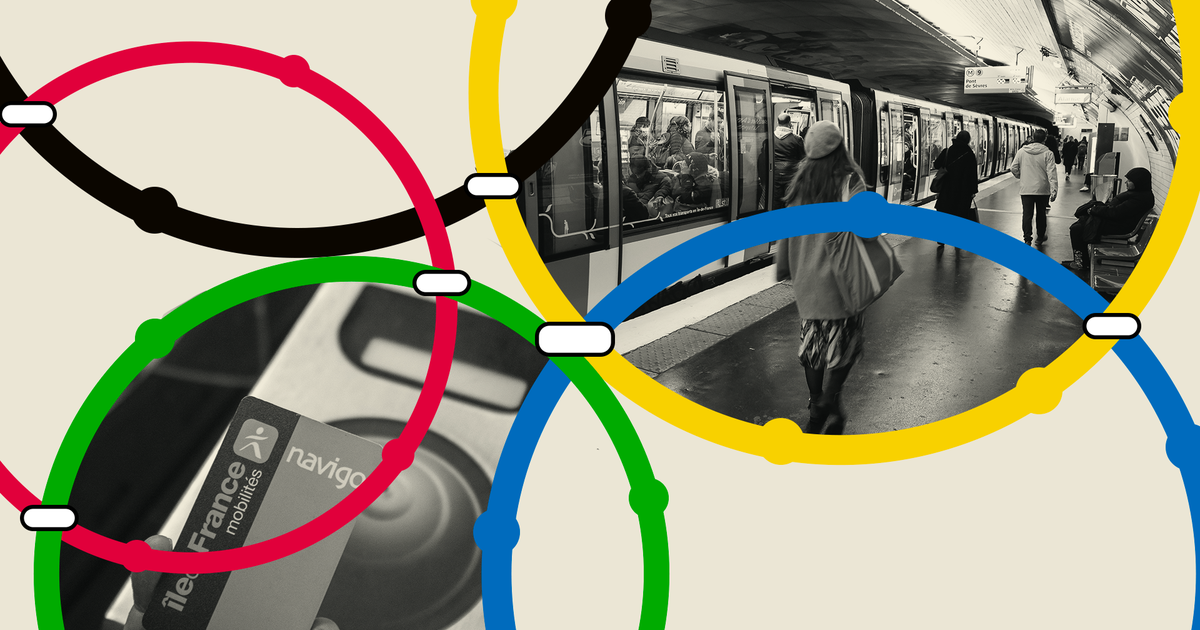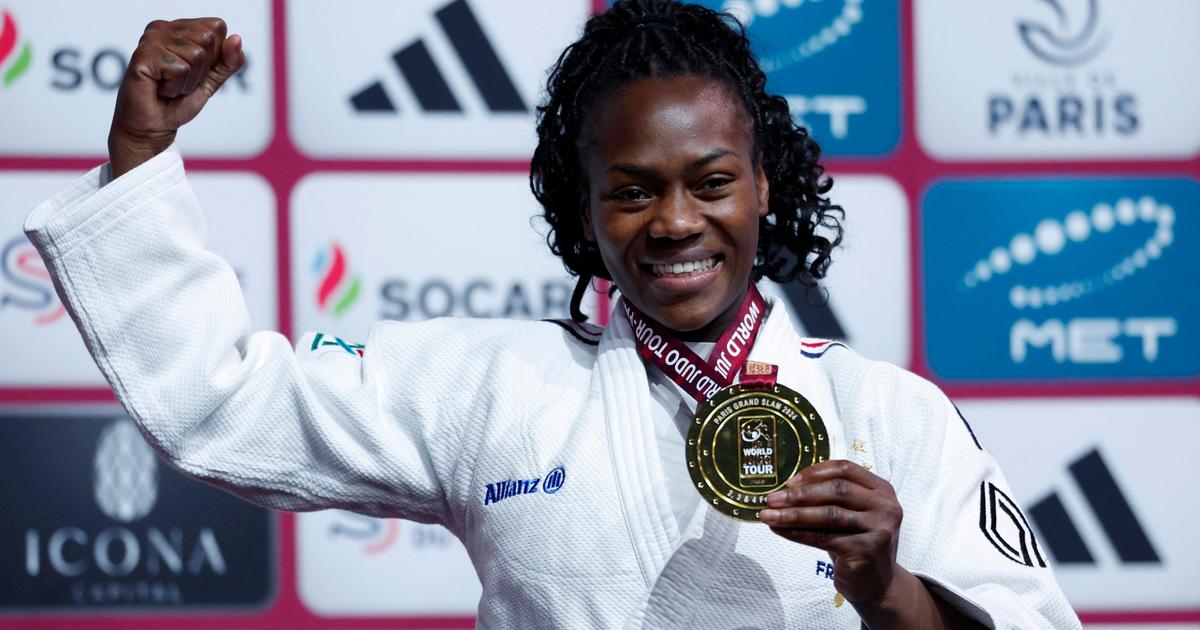Enlarge image
Theresa Stoll (white) and sister Amelie during training in Munich, February 2021
Photo:
Peter Kneffel / picture alliance / dpa
I remember the Olympics well when I was a kid.
You can watch TV for two weeks more than ever before.
Watch all kinds of sports with the whole family and join in the excitement.
That was great and a lot more than just entertainment.
It motivated us.
I started judo myself when I was eight.
Our parents took my twin sister and me into the gym for the first time when they brought our brother to training.
Since then, I've had my entire career with Amelie.
Today I am one of the best in my weight class worldwide.
Tokyo will be my first Olympic Games.
But I had imagined the preparation for this great dream differently.
At the end of March, shortly before the Grand Slam in Tbilisi, there was a major corona outbreak.
At a training camp in the run-up to the tournament, there should have been over 50 corona cases.
The German men's team was also partially affected.
Fortunately, I wasn't there myself - but my sister was.
All athletes were separated from the training camp in hotels, but athletes from the training camp were also allowed to compete.
The German Judo Association withdrew our entire team out of concern for our health before the tournament.
The athletes felt extremely uncomfortable in this situation.
On the evening before the competitions, our team decided together not to start.
It wasn't an easy decision.
"It is important that we athletes can speak openly about worries and fears"
Many competitions were canceled during the pandemic.
For my sister it would have been the first in a year.
She wanted to get on the mat and show what she can do.
Others desperately needed points for Olympic qualification and none of us can say how many chances there will be in the next few weeks.
But judo is also a contact sport.
We can separate ourselves on arrival, in hotels and in the hall.
In competition, on the other hand, we are very close to our opponents.
We don't know if we can get infected on the mat.
What would be sensible there?
Shortly afterwards, I myself canceled my participation in a tournament in Antalya with a heavy heart.
I knew that athletes from the training camp and the tournament in Georgia would start there.
This did not seem justifiable to me due to the sometimes very long incubation period.
At the moment, each of us takes a health risk in every competition that is far from being foreseeable.
Those who become infected by us are not only missing important weeks of preparation three months before the Olympic Games.
I also don't want to endanger anyone around me.
The long-term consequences of Covid-19 are also by no means foreseeable.
It is therefore important that we athletes can speak openly about worries and fears and that they are heard.
I know from other athletes that unfortunately this cannot be taken for granted.
Enlarge image
Theresa Stoll in training with sister Amelie
Photo: Peter Kneffel / picture alliance / dpa
I study medicine myself, but I'm not an expert when it comes to viruses.
Communication between the associations is therefore extremely important.
It is important that hygiene concepts are published and that we can deal with them.
I have to be able to assess the risk I am taking.
There must be firm rules for everyone - and also open communication if it fails.
Judo is a full contact sport.
We have to be sure that the concepts are watertight.
For us athletes, it's always a consideration.
Do I currently need the competitions for Olympic points?
Do I need them for practice and routine, or for self-confidence?
Others ask themselves: How do I stand in the qualification?
Is it getting tight?
I myself want to be among the top eight in the world rankings in order to have a good place in the seeding in Tokyo.
"It won't be the Olympics as we know it or as I wished for"
We take the risk because the Olympics is our dream, but sport is also our profession.
It is the responsibility of the associations to at least keep the risk to a minimum.
It has always been my biggest dream to go to the Olympics.
But it is also important to me that we do not endanger the people there in Japan or our home after our return.
I don't know if we'll get a chance to get vaccination before the games.
If so, I would like to accept them and represent my country at the games.
But I don't want to take a vaccination away from anyone who needs it more urgently than I do.
We must therefore analyze the mistakes that have been made in some major events abroad in the past few weeks and learn from them for Tokyo.
It has to be safe there for us and everyone else.
I don't think that's impossible.
You always imagine this togetherness at the Olympic Games.
That sports support each other.
That athletes get to know each other.
This idea is no longer compatible with the corona pandemic.
At least I don't think these games will be safe if they all mix together.
On the one hand, that makes me sad.
It will not be the Olympics as we know it or as I wished it to be.
Nevertheless, it remains my big goal to win a medal at the games.
Sports like mine only get attention every four years for what we do every day.
I hope that this will also motivate new talent.
That people watch at home and that children, like my sister and I at the time, may wish to be there on the mat at some point.
Recorded by Anne Armbrecht











/cloudfront-eu-central-1.images.arcpublishing.com/prisa/S7UVDTX7DREC7DXVCZN6MEKGBY.jpg)



